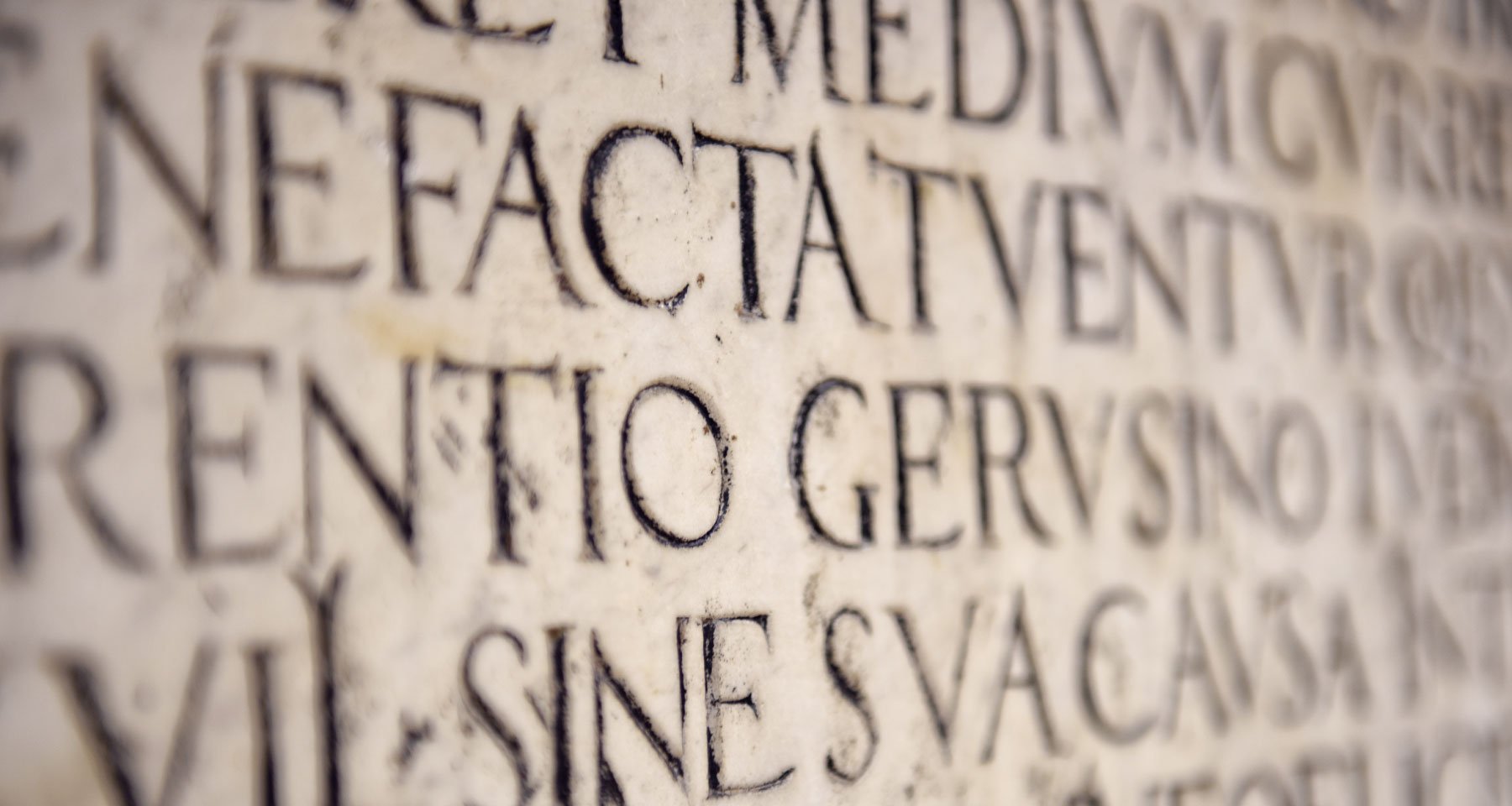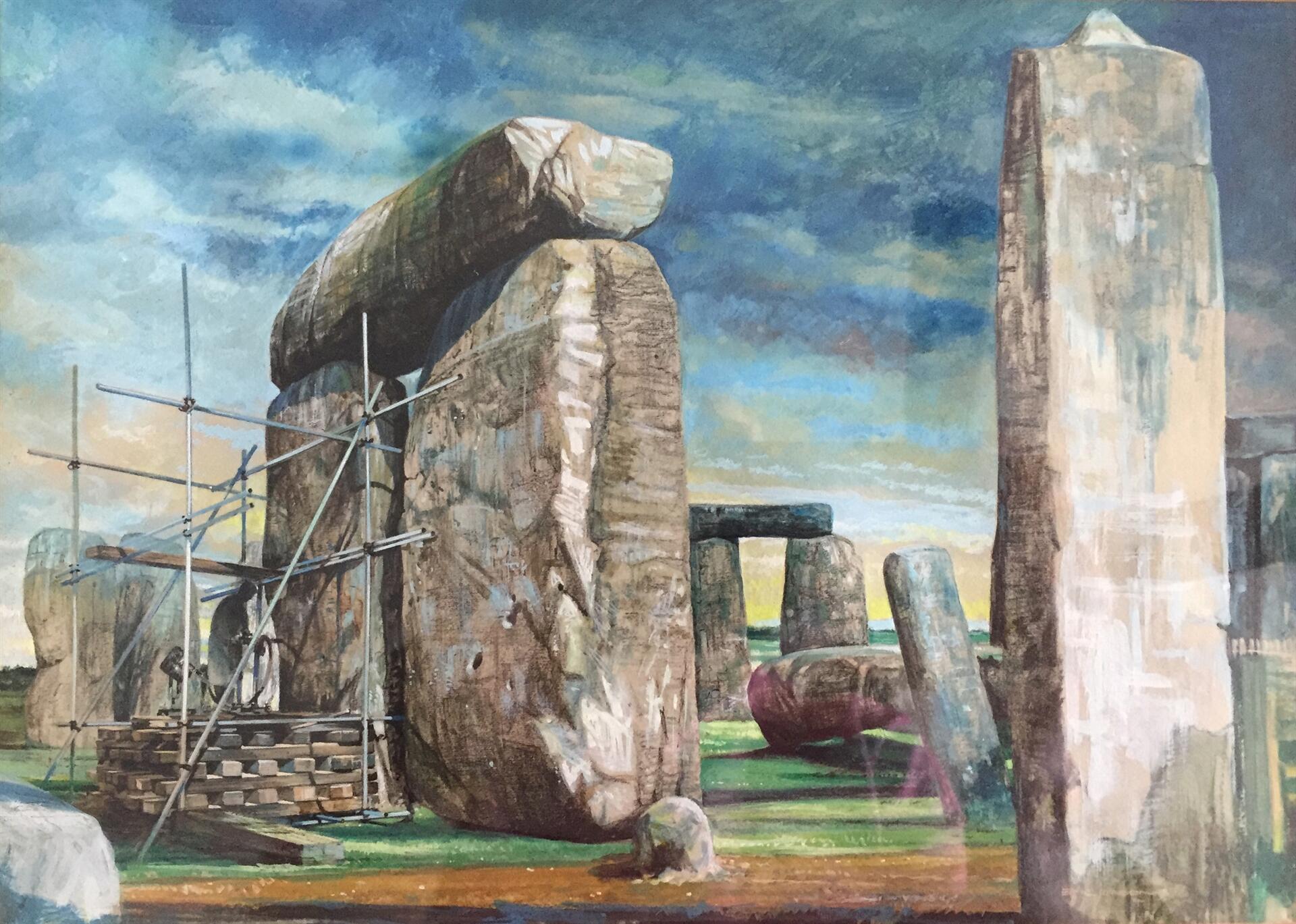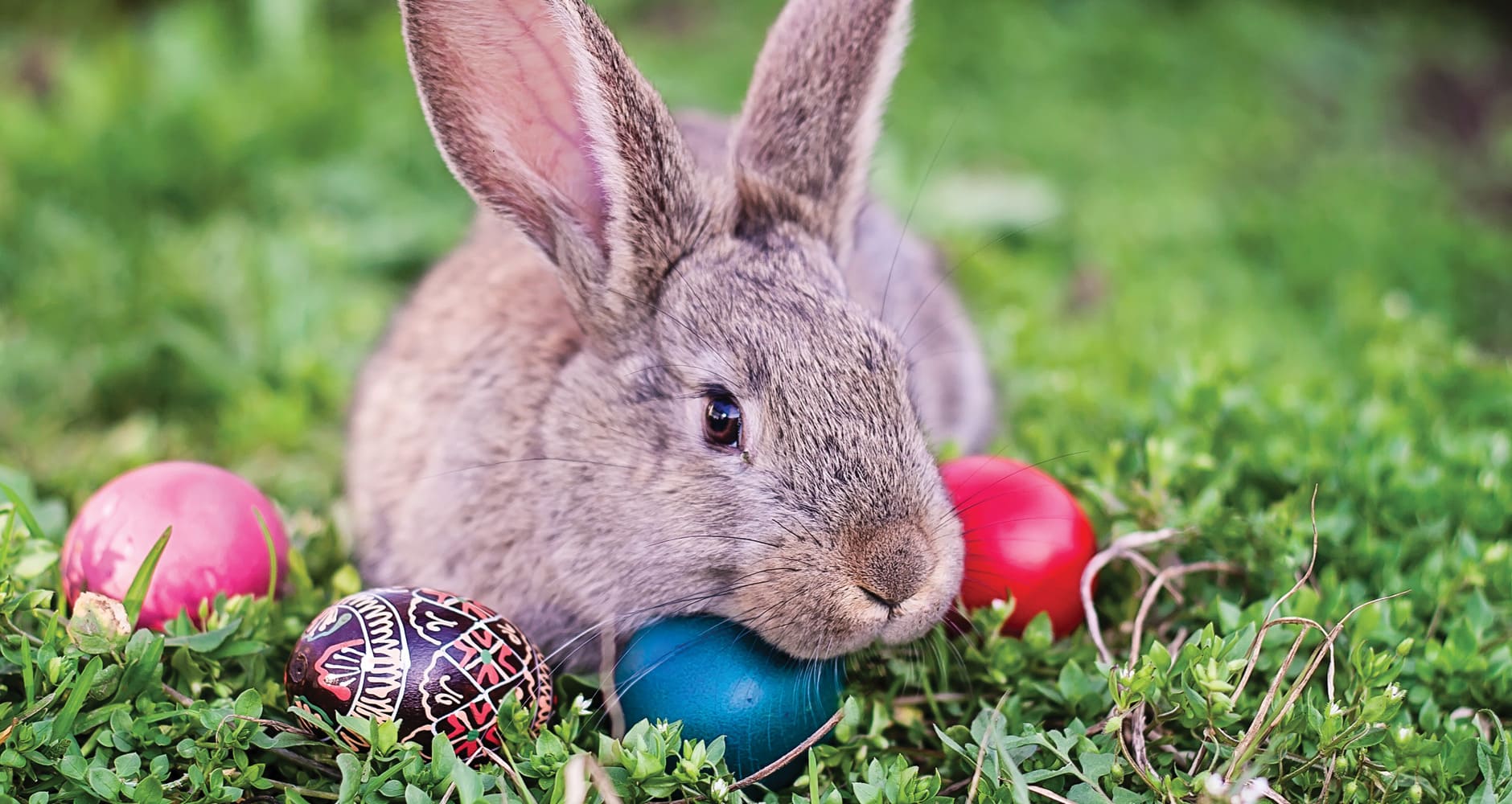These are the origins of the easter bunny
Table of Contents
Table of Contents
The Origin of Easter Bunny is a fascinating topic that has captured the imagination of people for centuries. As Easter approaches, children look forward to the arrival of the Easter Bunny and the treats that he brings. But have you ever wondered where this tradition started? In this article, we will explore the history of the Easter Bunny and its meaning.
Pain Points
Many people celebrate the Easter Bunny without understanding the meaning behind it. There is also confusion about how the Easter Bunny became associated with the Christian celebration of Easter. This lack of knowledge can prevent people from fully embracing the Easter Bunny tradition.
Answering the Target of Easter Bunny’s Origin
The history of the Easter Bunny can be traced back to ancient pagan celebrations of spring. The rabbit was a symbol of fertility and new life, which made it a perfect fit for the springtime holiday of Easter. As early Christianity spread throughout Europe, many pagan traditions were incorporated into Christian celebrations. The Easter Bunny is just one example of this blending of ancient and modern traditions.
Summary of Main Points
The Easter Bunny has its origins in ancient pagan traditions of fertility and new life. As Christianity spread, the rabbit became associated with the Christian celebration of Easter. Today, the Easter Bunny is a beloved symbol of springtime and new beginnings.
Exploring the Meaning of Easter Bunny
When I was young, I believed that the Easter Bunny was just a fun way to get candy. As I learned more about the history of Easter, I came to understand that the Easter Bunny symbolizes new beginnings and the hope of spring. The rabbit’s fertility and reproduction also represent the rebirth and renewal of the earth after a long winter.
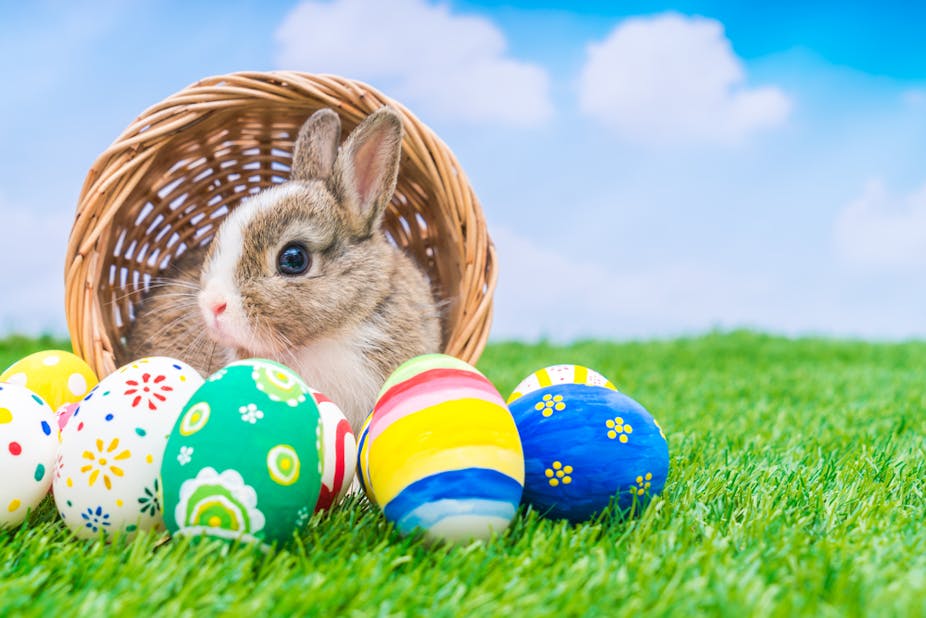 The Easter Bunny has also evolved over the centuries to take on different meanings for different cultures. In some cultures, the rabbit represents the moon and is associated with lunar cycles. In others, the rabbit is a trickster figure who brings both good and bad luck. No matter the interpretation, the Easter Bunny celebrates the joy and hope of the spring season.
The Easter Bunny has also evolved over the centuries to take on different meanings for different cultures. In some cultures, the rabbit represents the moon and is associated with lunar cycles. In others, the rabbit is a trickster figure who brings both good and bad luck. No matter the interpretation, the Easter Bunny celebrates the joy and hope of the spring season.
The Evolution of Easter Bunny
As a child, I remember waking up early on Easter morning to hunt for eggs and candy. My parents always made sure that I understood the reason for the celebration, but the Easter Bunny was the highlight of the day. Over time, I came to appreciate the complexity of the Easter Bunny tradition and the rich history behind it.
 The Easter Bunny has also taken on different forms in popular culture. From the gentle and friendly bunny in “Hop” to the mischievous and playful rabbit in “Peter Rabbit,” the Easter Bunny has become a fixture in modern entertainment.
The Easter Bunny has also taken on different forms in popular culture. From the gentle and friendly bunny in “Hop” to the mischievous and playful rabbit in “Peter Rabbit,” the Easter Bunny has become a fixture in modern entertainment.
The Bunny’s Connection to Easter
But how did the Easter Bunny become associated with Easter? The answer lies in the fact that Easter is a time of rebirth and renewal. The egg has long been a symbol of new life, and the rabbit, with its fertility and new beginnings, plays a natural role in this celebration of spring.
 The modern Easter Bunny tradition also owes its popularity to the German immigrants who brought the tradition to America in the 1700s. They would make nests for the Easter Bunny, which eventually evolved into the Easter baskets that we know today.
The modern Easter Bunny tradition also owes its popularity to the German immigrants who brought the tradition to America in the 1700s. They would make nests for the Easter Bunny, which eventually evolved into the Easter baskets that we know today.
The Legacy of the Easter Bunny
Today, the Easter Bunny remains a beloved part of the Easter celebration. From decorating Easter eggs to eating chocolate bunnies, the Easter Bunny brings joy to children and adults alike. By understanding the rich history and mythology behind the Easter Bunny, we can appreciate the full depth and meaning of this holiday tradition.
Question and Answer
What Is the Origin of the Easter Bunny?
The origin of the Easter Bunny can be traced back to ancient pagan traditions of fertility and new life. As Christianity spread, the rabbit became associated with the Christian celebration of Easter.
Why Is the Easter Bunny a Symbol of Easter?
The Easter Bunny is a symbol of Easter because it represents new beginnings and the joy of spring. The rabbit’s fertility and reproduction also symbolize the rebirth and renewal of the earth after a long winter.
What Does the Easter Bunny Have to Do with Christianity?
The Easter Bunny has its origins in pagan traditions, but it was incorporated into Christian celebrations as early Christianity spread throughout Europe. Today, the Easter Bunny is a beloved symbol of springtime and new beginnings for both Christians and non-Christians alike.
Why Do We Give Chocolate Bunnies at Easter?
Chocolate bunnies are a modern adaptation of the Easter Bunny tradition. They have become a popular way to celebrate the Easter season and to share joy with family and friends.
Conclusion of Easter Bunny Origin
The Easter Bunny is more than just a fun tradition for children. It symbolizes new beginnings, rebirth, and the hope of spring after a long winter. By understanding the rich history and mythology behind the Easter Bunny, we can appreciate the full depth and meaning of this beloved holiday tradition.
Gallery
The Easter Bunny’s Surprising Origin Story | Easter Bunny, Easter

Photo Credit by: bing.com / surprising resurrection
What Is The Origin Of The Easter Bunny And Easter Eggs? - Joy! Digital

Photo Credit by: bing.com / easter bunny origin eggs
These Are The Origins Of The Easter Bunny - And Why We Celebrate The

Photo Credit by: bing.com / rabbit
The Pagan Origin Of The Easter Bunny Explained
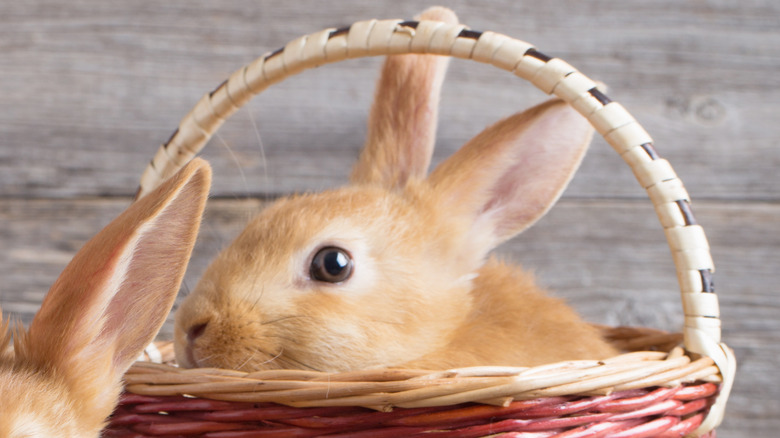
Photo Credit by: bing.com /
The Very Strange History Of The Easter Bunny

Photo Credit by: bing.com / easter bunny history strange very shutterstock chocolate also available

